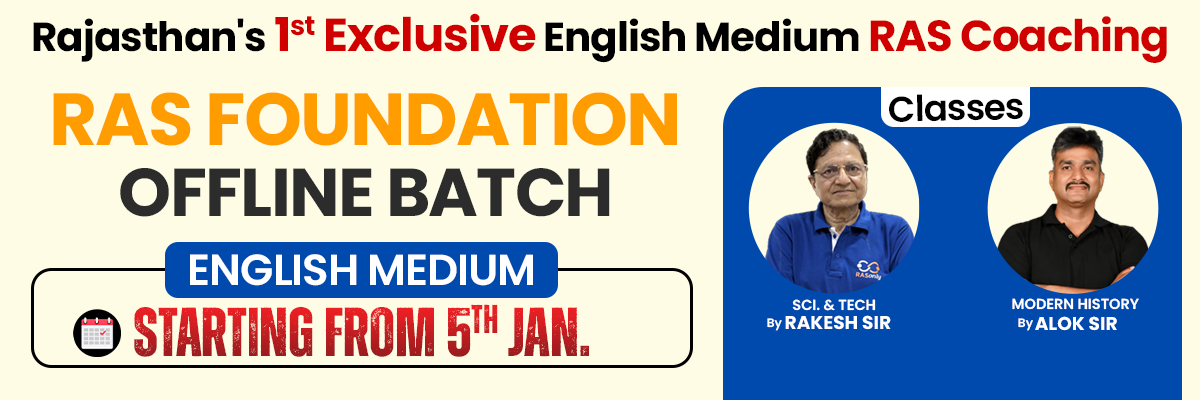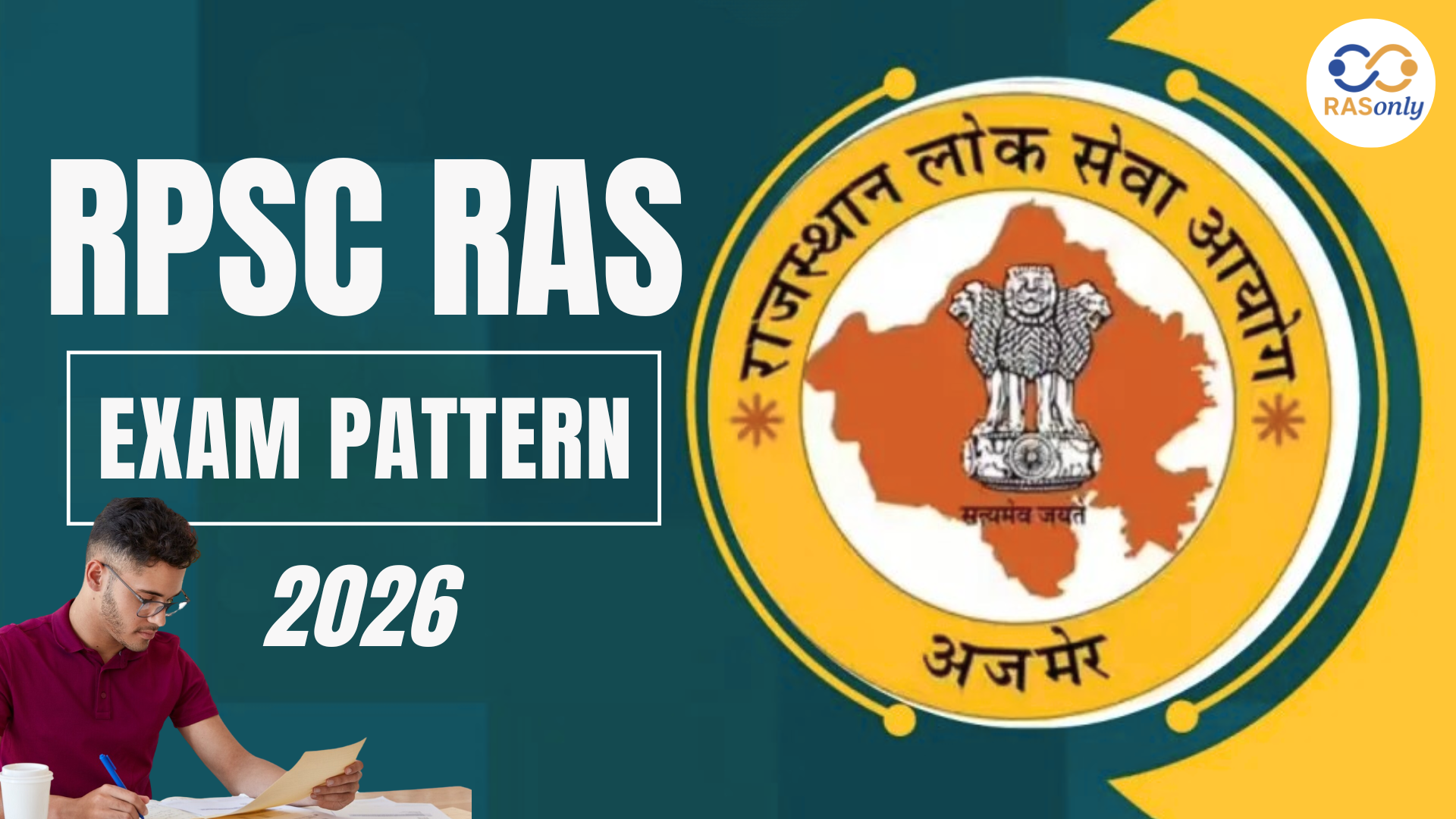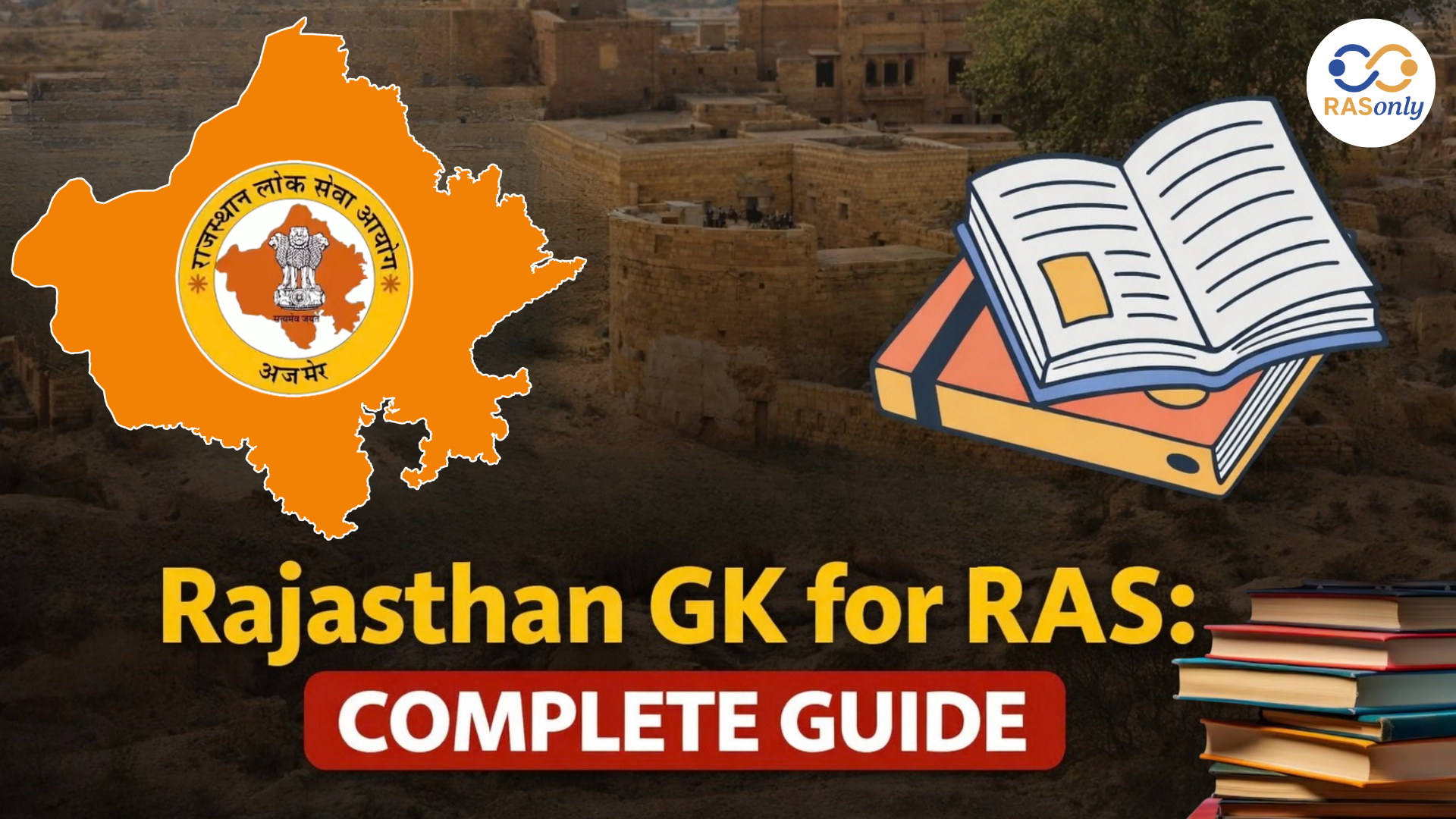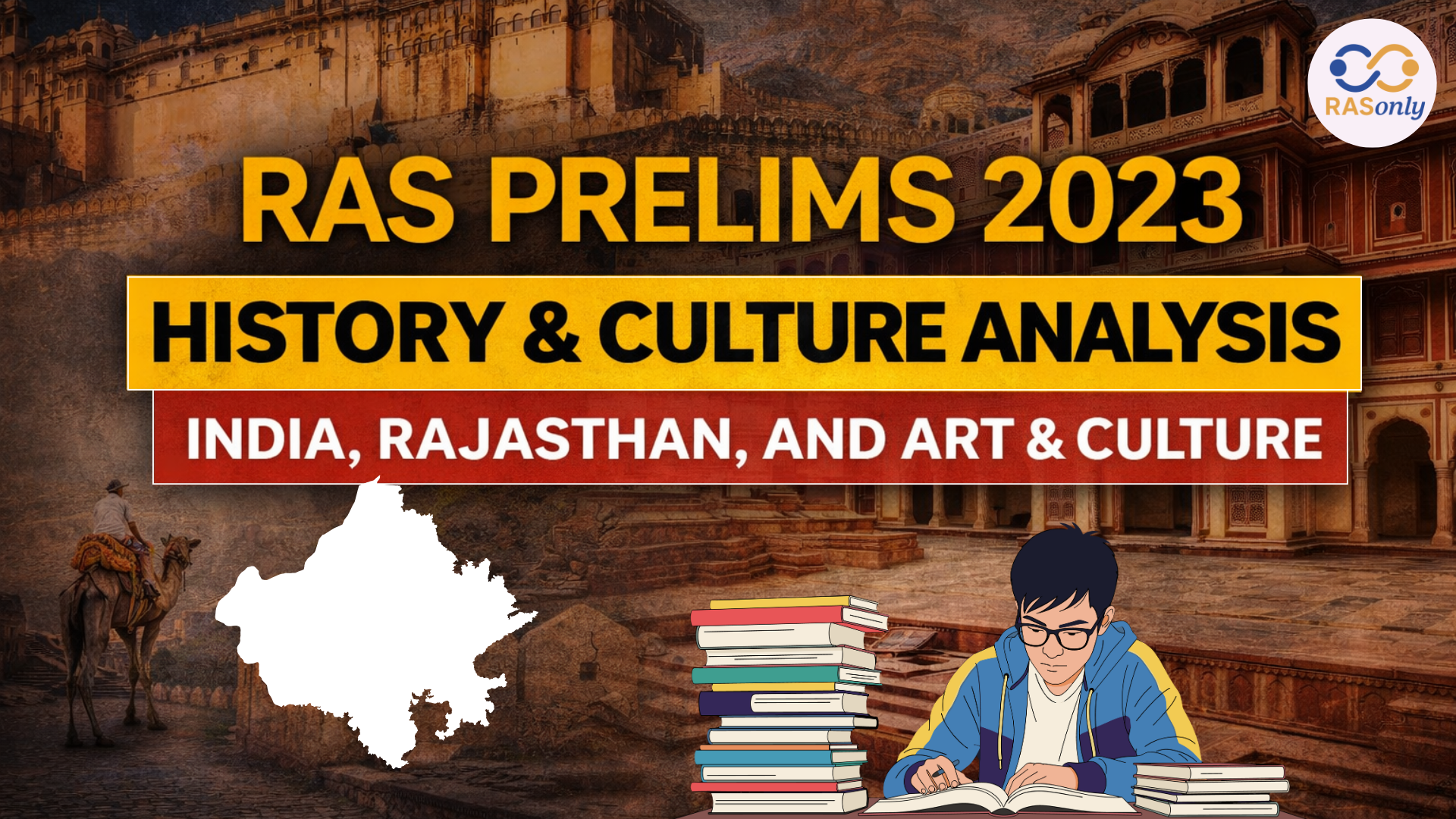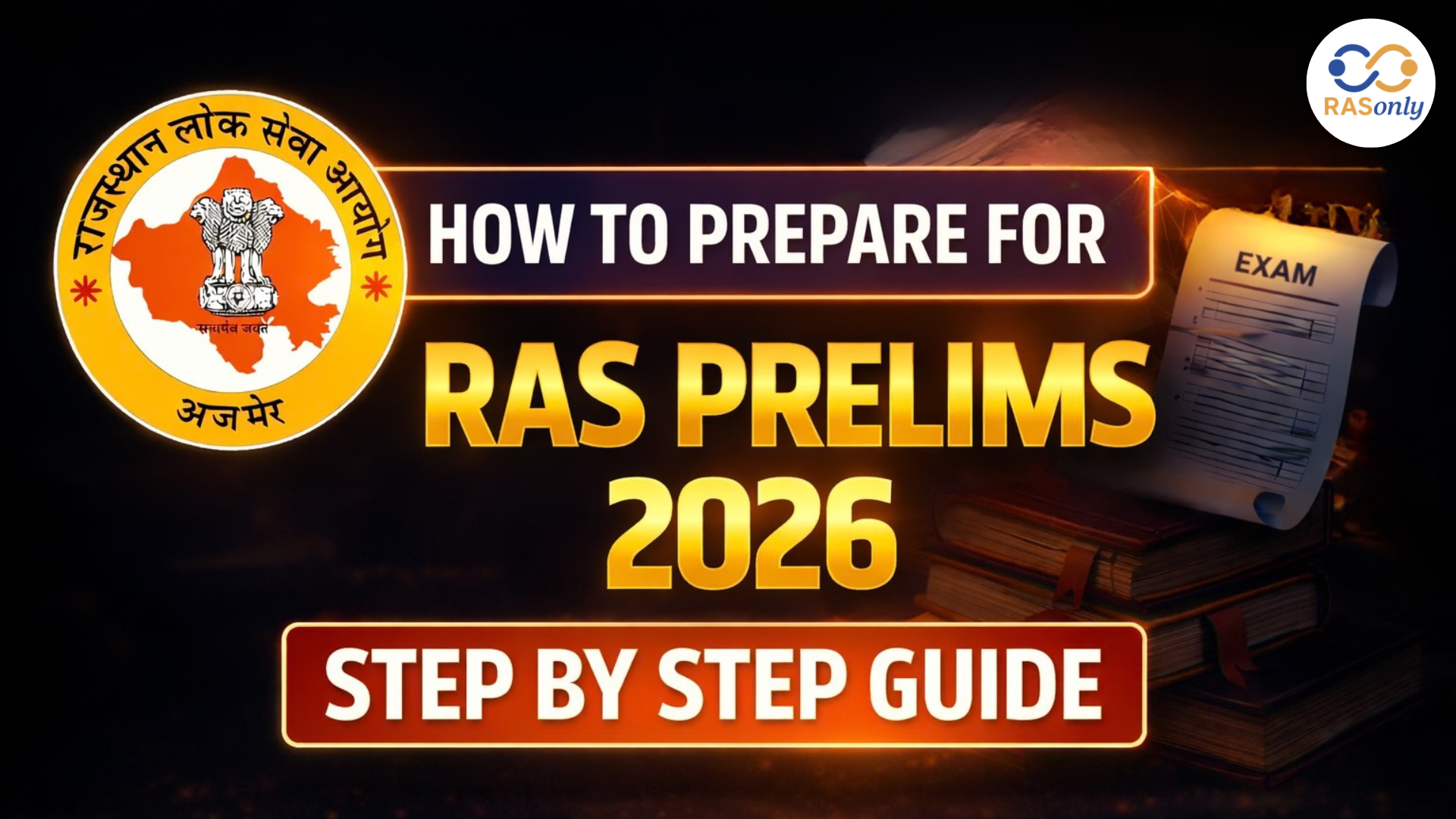RPSC RAS 2026 Subject Wise Exam Pattern for Prelims, Mains & Interview Details
- >
- RAS Preparation Resources
- >
- Migration in India
Migration in India

Get in Touch with RASonly!

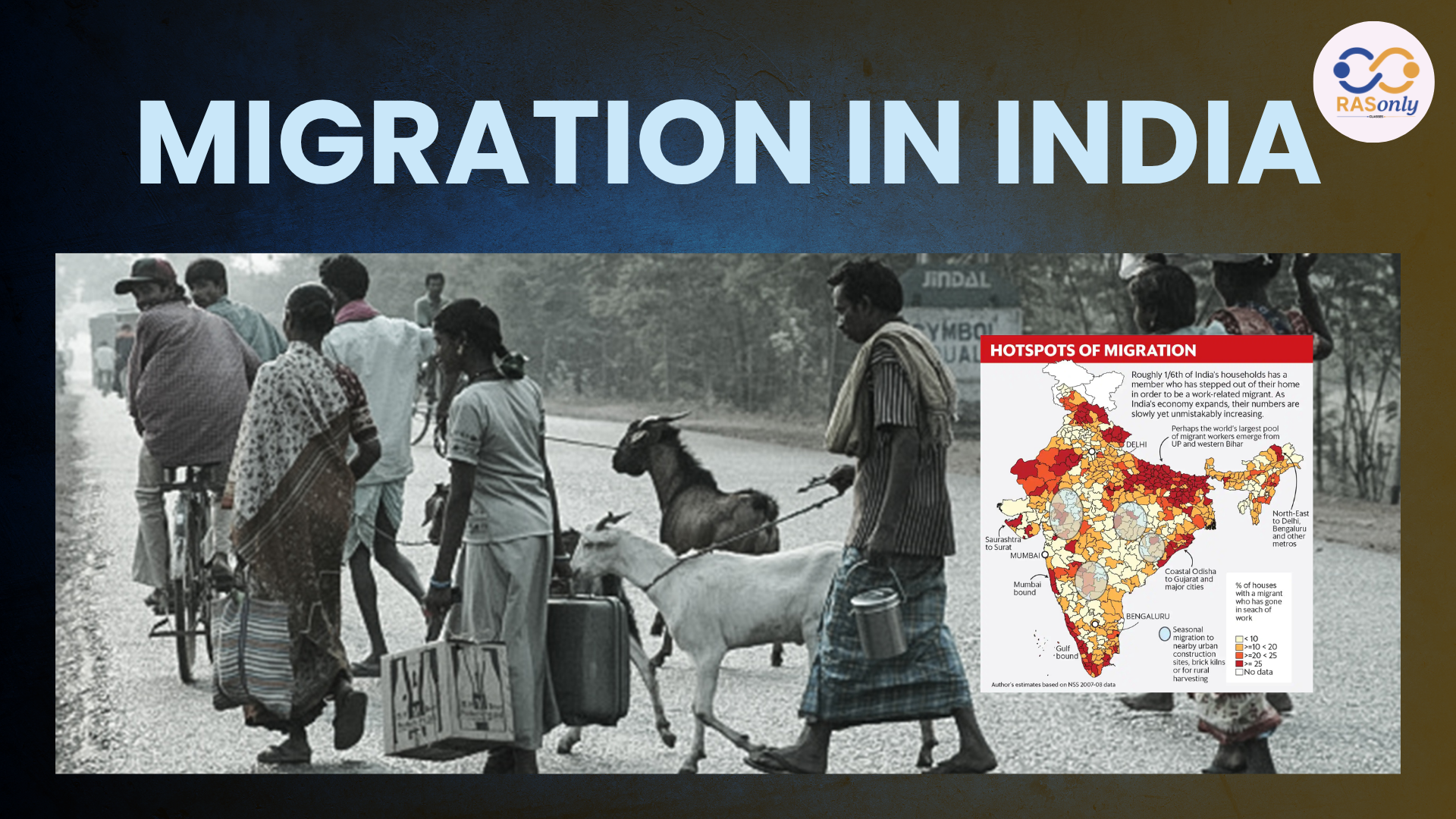
Migration can be termed as the movement of people between regions, interstate and countries due to economic, social, political or environmental factors within India. It has internal and international, voluntary and forced, temporary and permanent cases. Migration helps to foster economic development by sending remittance, providing labour and bringing diversity into the economy. It also presents such problems as urban congestion, social friction, and insecurity among the migrants. The benefits should be utilized and the drawbacks discouraged by means of competent policy, social security and data-based planning.
Key Highlights for RAS Mains
What is migration?
- Migration is an act of people or group of people changing geographical locations, both internally or externally in the country.
- According to the International Organization on Migration (IOM), a migrant is an individual who moves his residence, be it temporary or permanent, across national or regional borders.
Types of Migration
- Internal Migration
- Intra-state (e.g. rural to urban in Maharashtra)
- Inter-state (e.g. UP to Delhi work migration)
- International Migration (International)
- For example, Indians IT to USA, Gulf to GCC.
- Voluntarily or Forced Migration
- Voluntary: to get a better chance
- Forced: because of war, persecution or natural disaster (e.g. Rohingya to Bangladesh)
- Temporary & Permanent Migration
- Temporary: seasonal workers
- Permanent: moving permanently to a foreign state
- Reverse Migration
- Back to home (e.g. in case of the COVID-19 lockdown in India)
Reasons of Migration
- Economic Factors
- Push: poverty, unemployment, low agricultural yield
- Pull: Wages and incentives as well as employment, urban amenities
- Socio-Cultural Factors
- Matrimonial relationships, learning, avoiding caste discrimination, descent relations
- Political Factors
- War, persecution, instability (e.g., Kashmiri Pandits, Sri Lankan Tamils)
- Environmental Factors
- Calamities, drought, global warming
- Sardar Sarovar Project is an example that displaced more than 40, 000 tribal families
- Development-Induced Migration
- Because of large infrastructure (e.g. Narmada Dam, Ken-Betwa link)
Effects of Migration
Positive Impacts
- Economic: Labour supply, productivity, remittances ($111 bn in 2022 in the case of India)
- Social: Dissemination of ideas, family planning, school ambitions
- Cultural: diversity, multiculturalism
- Adoption of urban development: Increase in housing, services and markets
- Innovation - Labour flexibility: introduction of skills, gap filling jobs
Negative Impacts
- Demographic Imbalance: Outmigration of youths in villages Ensues → ageing in villages, Feminization of agriculture
- Urban Overcrowding: Overstrain of housing, transport and rubbish tools (e.g. slums Mumbai)
- Social Tensions: Cultural disharmony, job pressure and discrimination
- Environmental Stress: pollution, depletion of resources in towns
- Separation, mental stress: Family Disintegration
Data of Migration in India
- By MoSPI on Migration Report (2020-21)
- All-India rate of migration: 28.9%
- Female migrants: 47.9% (primarily with marriage related)
- Male migration: 10.7% (mostly on work basis)
- 2011 Census
- Internal migrant- 45.36 crore (37 percent of population)
- Large origin states; UP, Bihar, Odisha
Migration Challenges in India
- Insecurity of work and its facilities of social security
- Small amounts of PDS, healthcare, education and housing
- Abuse and wage-slavery within the informal sectors
- Weak state mobility of provision
- COVID-19 revealed fundamental weaknesses of the urban migrant labour
- Violence and regional discrimination (e.g., 2008, the assaults on migrants of Bihar to Maharashtra)
Government Initiatives
- e- Shram portal: National registry of unorganised workers
- One Nation One Ration Card (ONORC): Empowers rations wherever it is available
- Affordable rental Housing Complexes (ARHC)
- PM Garib Kalyan Yojana: COVID-19 relief:
- The Labour Codes (Social Security Code): Inter-state migrant workers benefits
- National Migrant Labour Policy (NITI Aayog draft)
International Framework
- There is the Global Compact for Safe, Orderly and Regular Migration (2018, Morocco).
- New York Declaration on Refugees and Migrants by UN (2016)
- International Migrants Day: It is on December 18 every year
Way Forward
- Universal Social Security: Transferability of plans (ONORC, Ayushman Bharat)
- Skill Development & Local Jobs: Reduce distress migration (e.g. PM Kaushal Vikas Yojana)
- Barriers to urban Population Growth: Counter-Magnet Cities (decentralise urban pressure e.g., tier-2 cities like Indore, Surat)
- Labour Protection Laws: Employ equal wages, adequate working conditions
- Data-Driven Policy: Enhance migration surveys that would allow migrating effectively
- Encouraging Integration: Maintain the social inclusion and rights of the migrants
Conclusion
Migration is a privilege and struggle. Although it leads to economic growth, diversity as well as social mobility, it also needs sound policy frameworks that manage its negative effects. Migration can be one of the foundations of sustainable development in India as part of its inclusive governance, skill-building organizations, and migrant welfare programs.
Post Category
- RAS Salary
- Result
- RAS Admit Card
- RAS Job
- RAS Cutoff
- Preparation Tips
- RAS Answer Key
- RAS Exam Analysis
- RAS Syllabus
- RAS Previous Year Papers
- RPSC RAS Exam Pattern
- RAS Interview
- RAS Mains Exam Date
- RAS Vacancy
- RAS Test Series
- RAS Best Books
- RAS Preparation Resources
- RAS Coaching Centre
- History
- Polity
- Geography
- Economics
- Science
- Art and Culture
- RPSC RAS Application Form
- RPSC RAS Notification
RASonly Interview Guidance Program

Mr. Ashok Jain
Ex-Chief Secretary Govt of Rajasthan
- IAS officer of the 1981 batch, Rajasthan cadre.
- Passionate about mentoring the next generation of RAS officers with real-world insights.
- Got retired in Dec 2017 from the post of Chief Secretary of the state of Rajasthan.

Mr. Guru Charan Rai
Ex-ASP / SP in Jaisalmer
- Guru Charan Rai, IPS (Retd), retired as Inspector General of Police (Security), Rajasthan, Jaipur in 2017.
- Served as ASP and SP in Jaisalmer, Nagaur, Sri Ganganagar, Sawai Madhopur, Dausa, Sikar, and Karauli.
- He also held key positions as DIGP and IGP in the Law and Order division.

Mr. Rakesh Verma
Ex-IAS Officer, B.Tech, MBA, and M.A. (Economics)
- IAS officer of the 1981 batch and retired in Chief Secretary Rank.
- Civil servant of high repute and vast experience.
- Has been teaching UPSC CSE subjects for the last six years.
Related Post
Daily Current Affairs for RAS Exam Preparation 2026
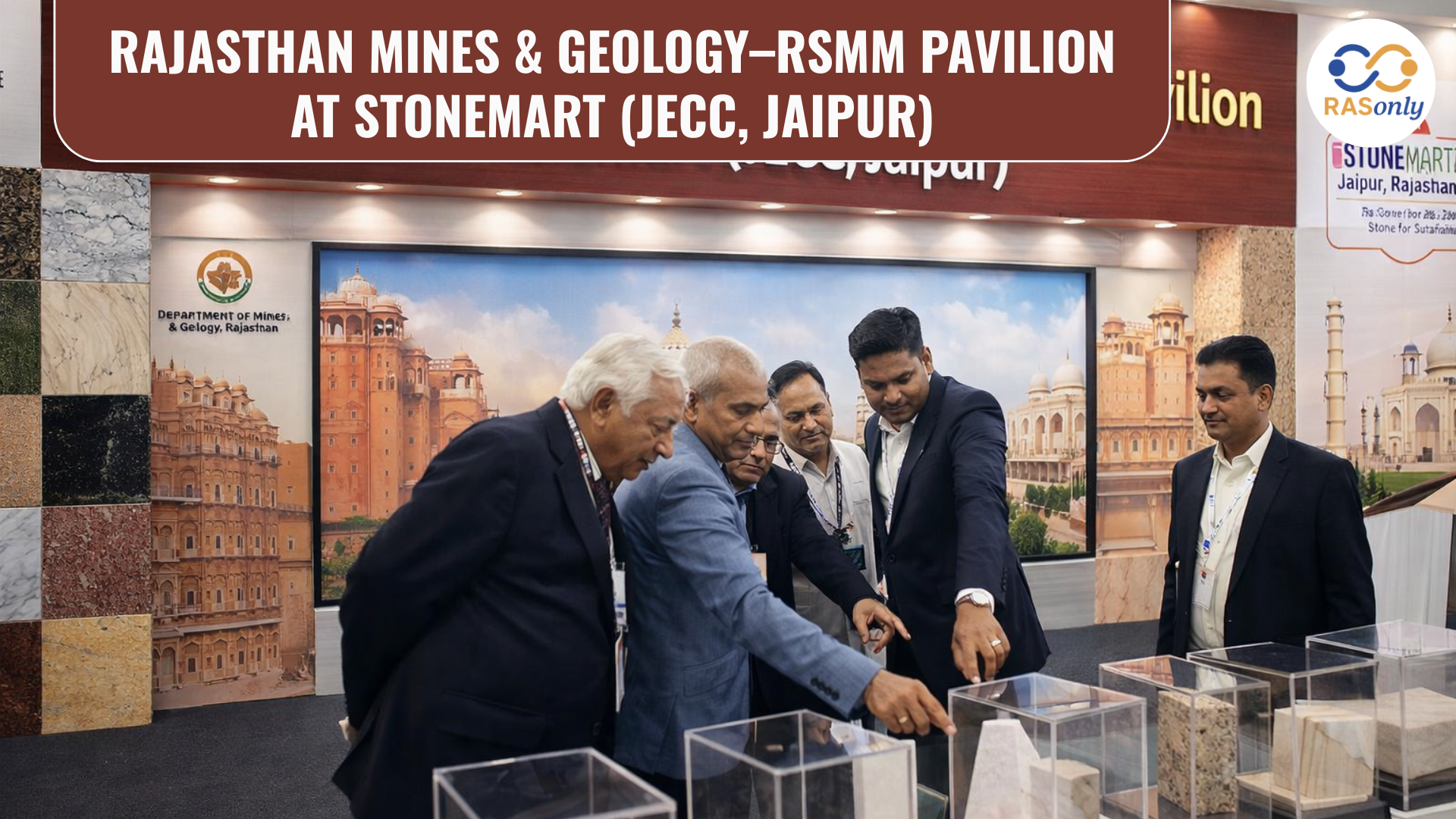
Rajasthan Pavilion Shines at Stone Mart Jaipur 2026
February 07, 2026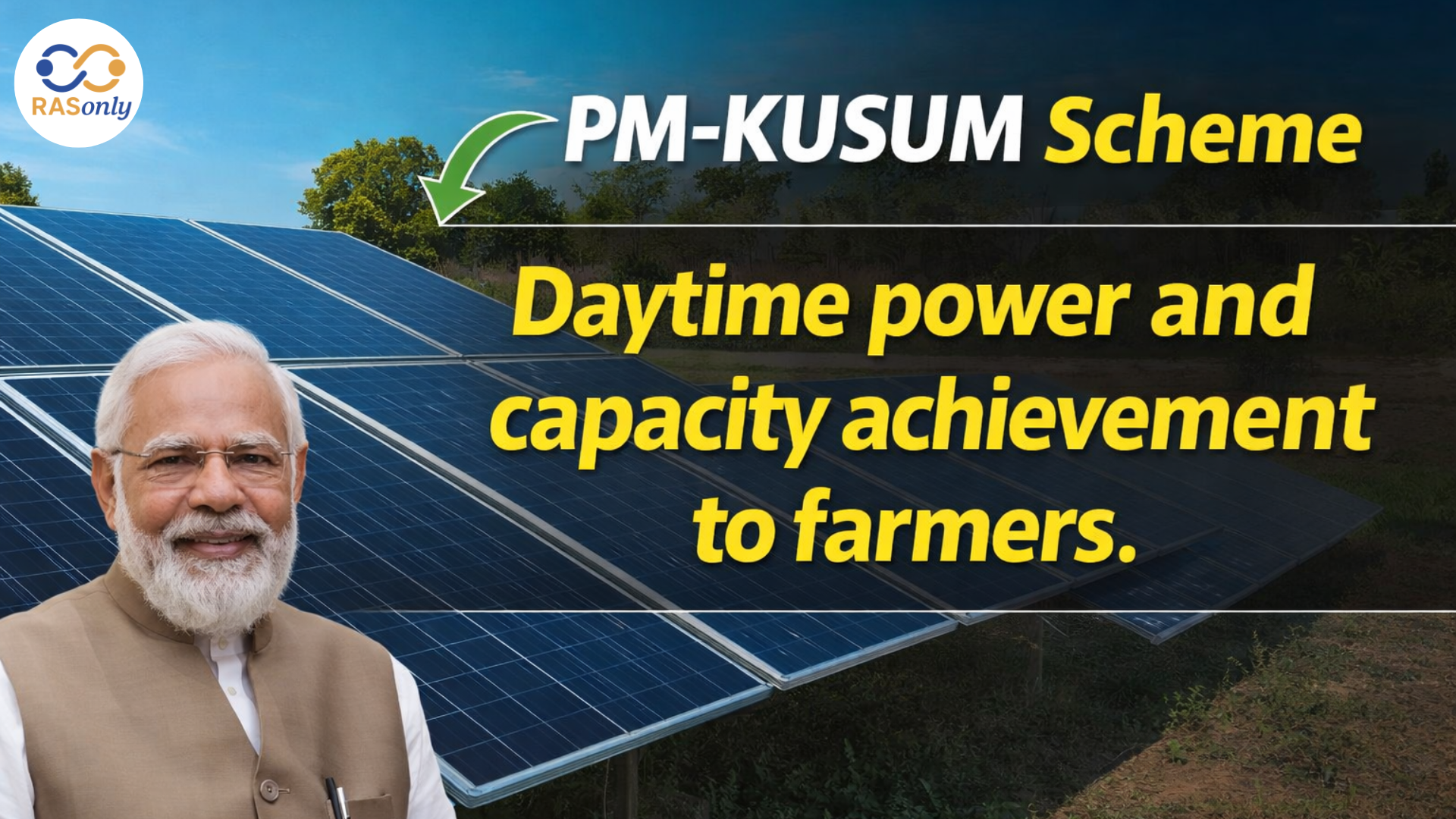
Rajasthan Achieves 3,000 MW Under PM-KUSUM Scheme
February 07, 2026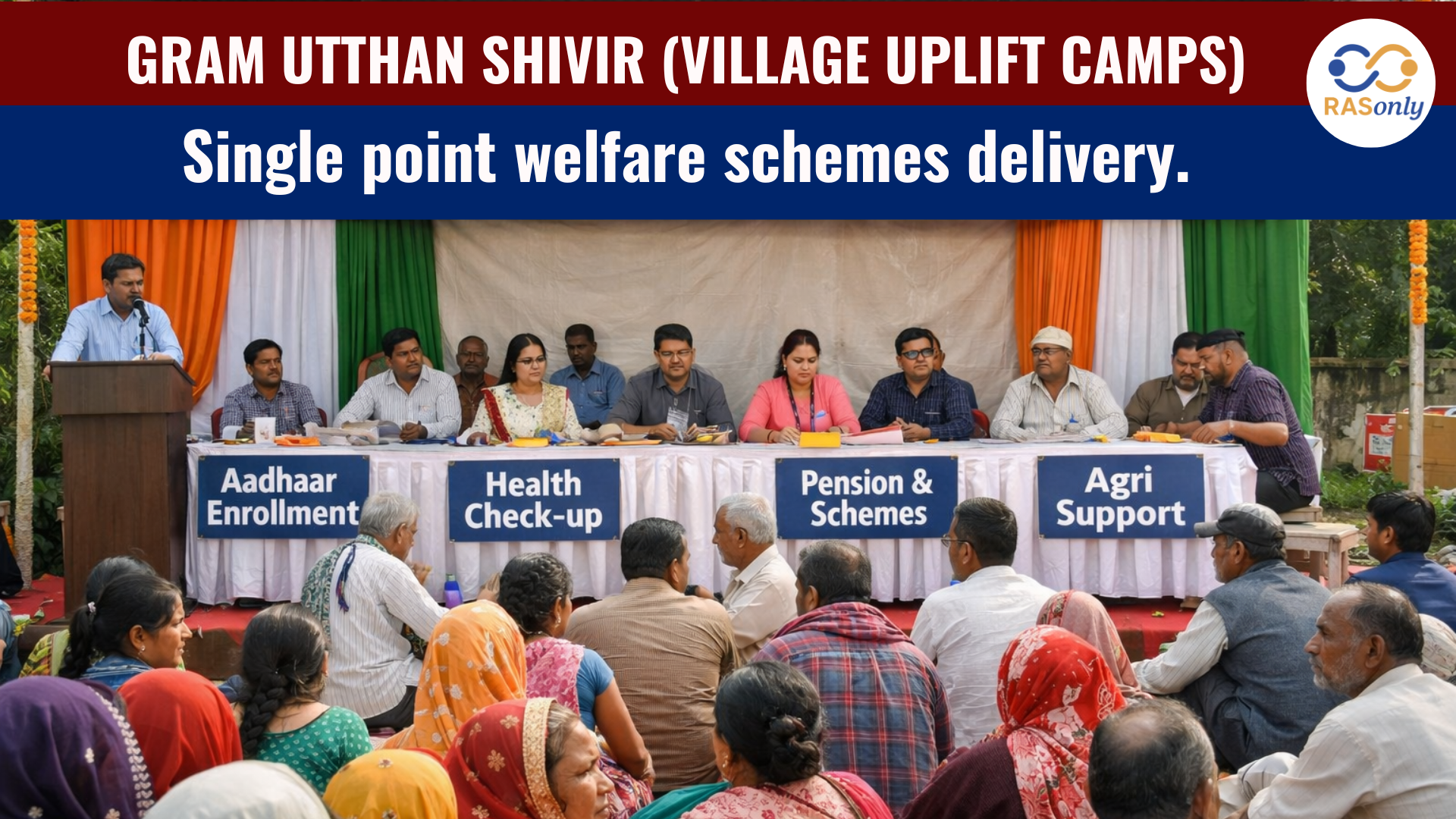
Gram Utthan Shivirs Strengthen Rural Governance in Rajasthan
February 07, 2026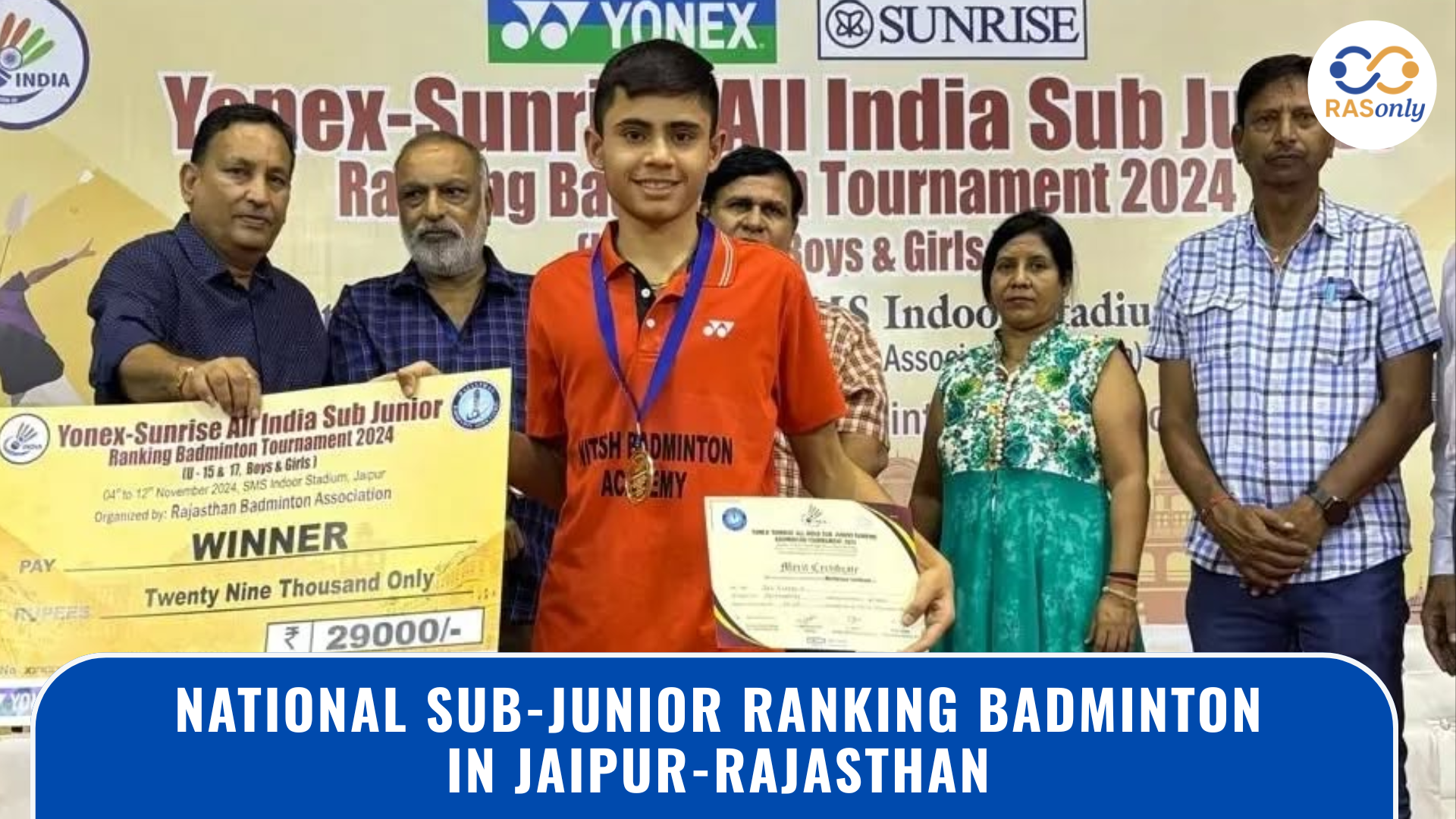
Jaipur Badminton: 72-Minute U-15 Final Creates Record
February 06, 2026👉🏻 Register Today to Join Classes! 👍🏻
- Team RASOnly -
🎯 Benefits of RASOnly Coaching:
- ✅ 1:1 Mentorship with RAS Officers
- ✅ Experienced and Expert Faculty
- ✅ Free Library Access
- ✅ Daily Minimum 4 Hours Must
- ✅ Comprehensive Study Material
- ✅ Regular Tests & Performance Analysis
- ✅ Personalized Guidance & Doubt Solving
- ✅ Online & Offline Class Options
- ✅ Affordable Fees with Quality Education
Key Highlights:
- 👉🏻 3-Day Refund Policy
- 👉🏻 New Batch Starting from 04 August
- 👉🏻 Registration Amount: Only ₹1000




